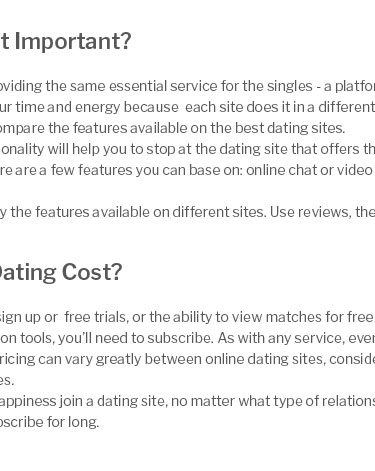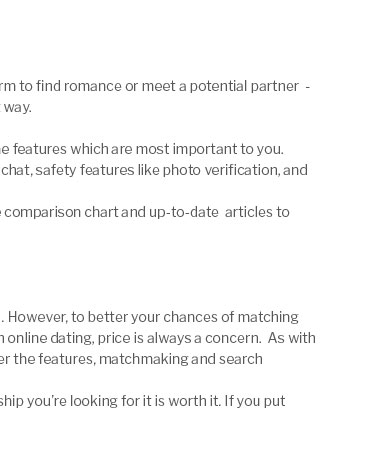married couple affairs guide and insightsOverview and ground rulesExploring outside intimacy as a pair can be thrilling and delicate. The healthiest path blends consent, clarity, and compassion, while honoring privacy and personal values. Consent is essential. Clarity reduces risk. Common motivations- Shared curiosity about fantasies
- Novelty as a joint adventure
- Desire for expanded social and sensual circles
- Reinforcing teamwork through open communication
Boundary design- State hard limits and soft limits in plain language
- Define acceptable settings, behaviors, and language
- Agree on safer intimacy practices and health safeguards
- Set stop signals and escalation rules
- Create a reflection protocol for feelings and lessons
Popular options comparedPrivate online networksClosed communities emphasize discretion, member screening, and niche matching. Many couples prefer curated spaces such as dating sites for married people for focused discovery, profile controls, and compatibility filtering. - Strengths: Niche focus, privacy controls, culture fit
- Trade-offs: Smaller pools, possible membership costs
App-based matchingLocation-aware apps enable quick discovery, flexible filters, and casual messaging. Regional options like tinder orleans can help couples find nearby matches and manage visibility with profile tools. - Strengths: Broad reach, swift filtering, easy chats
- Trade-offs: Mixed intentions, variable verification
Social venues and circlesLounges, lifestyle-friendly clubs, and invite-only gatherings offer direct chemistry checks and shared norms. Caution and clear introductions support safety and respect. - Strengths: In-person vibe, transparent etiquette
- Trade-offs: Exposure risks, logistics, social energy
Travel-based connectionsMeeting away from home can reduce visibility and provide fresh settings. Prioritize safety, route planning, and mutual expectations. - Strengths: Discretion, novelty
- Trade-offs: Costs, coordination, unfamiliar areas
Risk management and discretionStrong privacy habits protect relationships and personal data. - Use pseudonyms and separate contact channels
- Strip photo metadata, avoid recognizable backdrops
- Prefer platforms with granular visibility controls
- Store sensitive chats in locked apps with backups off
- Apply safer intimacy practices and keep healthcare support in mind
- Respect workplace and community boundaries
Privacy first, ego second. Communication frameworksPreparation- Write shared goals: connection, exploration, learning, or all
- Establish veto power without debate
- Define green, yellow, and red signals plus exact meanings
- Pick a feedback method: voice, notes, or rating scales
- Agree on disclosure rules for details with other partners
On-the-spot conduct- Stay within agreed scripts and limits
- Use safety words instantly and pause at yellow
- Maintain kindness toward all participants
Emotional care and review- Name feelings without blame
- Capture wins and frictions for updates to rules
- Offer repair: reassurance, affection, or space as requested
Feelings deserve equal billing with fantasies. Ethics and wellbeingEthical behavior keeps everyone safer. Seek explicit consent from third parties, avoid deceit about relationship status, and treat each person as a full human with needs and limits. - Be transparent about being partnered
- Honor opt-outs without pressure
- Avoid substances that blur judgment
- Consider counseling to strengthen resilience and empathy
FAQHow can a couple agree on boundaries without harming trust?Use plain, observable rules rather than vague ideas. Document hard limits, define allowed settings, list off-limits topics, and give each partner unconditional veto power. Revisit rules with empathy and adjust wording for precision. What are discreet ways to meet like-minded partners?Leverage curated communities and platforms with strong privacy controls, such as niche networks or selective groups. Favor profile fields that clarify couple status, and verify matches through video or voice before meeting in public places. How is jealousy handled constructively?Treat jealousy as information, not failure. Identify the trigger, map it to a need (attention, reassurance, safety), and meet that need through specific actions like affectionate rituals, clearer boundaries, or pacing changes to interactions. Which privacy tools help protect identity?Use masked email, a separate number via reputable apps, face blurring for photos, and password managers. Disable location trails, strip metadata, and keep sensitive chats in locked containers with strong authentication. Is honesty with potential partners necessary?Yes. State that you are a partnered couple, outline boundaries, and request their limits as well. Honesty promotes informed consent and reduces harm, leading to better matches and safer experiences.

|



















